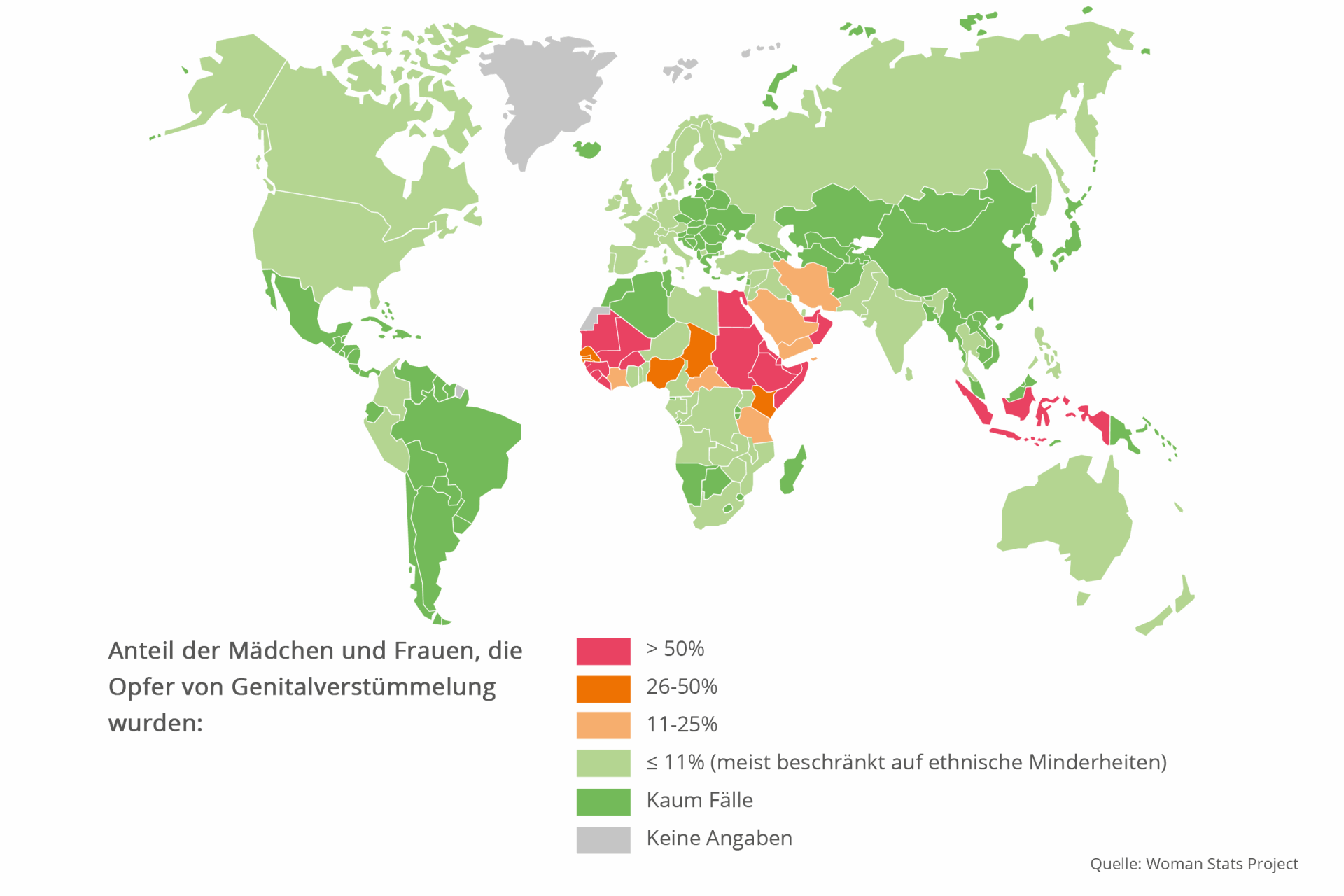Information for professionals
Information on FGM/C
Around three million girls are at risk of female genital mutilation (FGM/C) every year, according to World Health Organization (WHO) estimates, and there are over 200 million affected people worldwide. At least 44 million affected girls are under the age of 15 (WHO 2017). Due to migration movements in recent years, the number of girls and women affected by or at risk of FGM/C is also increasing in Austria. According to estimates, approximately 6,000 to 8,000 affected women lived in Austria in 2016 (EIGE 2013). However, the number of unreported cases is probably significantly higher.
Circumcision usually takes place before puberty, often among girls between the ages of four and eight, and now also increasingly among infants who are only a few weeks or months old. There is evidence that FGM/C is also practiced in Austria, as well as during vacation trips to the countries of origin. According to estimates by the Ministry of Health, approximately 100 girls and women are affected annually.
Prevalence of FGM/C
FGM/C is most prevalent in western, eastern, and northeastern regions of Africa, in some countries in Asia, and in the Middle East. In particular, countries such as Somalia, Eritrea, Sudan, Egypt, Guinea, Sierra Leone, Mali and Djibouti have high rates of circumcision.

There are 4 forms of genital mutilation according to the WHO classification:
- Type 1: „clitoridectomy”
- Type 2: „excision“
- Type 3: „infibulation“
- Type 4: „various unclassifiable practices” e.g.: Piercing, incision or tearing of the clitoris
Tips for leading the conversation
In everyday practice, affected women rarely proactively turn to a counseling center with the issue of FGM/C. Only health problems and the pain of suffering cause the women to seek help. These health problems are often consequences of the mutilation, but many women do not associate them with it. For them, pain is part of being a woman. Only after a trusting relationship has been carefully established it is possible to talk to the women about the cause of their pain and to inform them about the health consequences of FGM/C and the treatment options.
Important steps for talking to those affected and potentially at risk:
- Take sufficient time. Ensure a quiet, undisturbed atmosphere.
- Do not address the woman directly about her personal situation. A better approach is to first find out whether circumcision is common in her environment.
- Pay attention to how the woman expresses herself and pick up on the terms she uses, such as “circumcision.” Avoid drastic terms such as “mutilation”.
- Make your point without judging or addressing your shock about it. Show respect and empathy.
We offer training for professionals on how to interact with affected women. Click here for more information about our offer and current trainings
Do you need immediate
advice and support?
Contact us via our info phone
or by mail
info@fgm-koordinationsstelle.at
You need more information on the topic of FGM/C?
Click here for info material, guidelines and additional background information on FGM/C